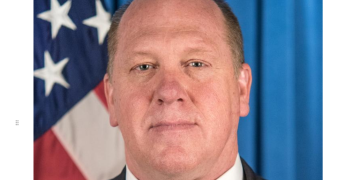New York (CNN) — TikTok has lost its bid to strike down a law that could result in the platform being banned in the United States.
A US appeals court upheld the law in a ruling Friday. Denying TikTok’s argument that the law was unconstitutional, the judges found that the law does not “contravene the First Amendment to the Constitution of the United States,” nor does it “violate the Fifth Amendment guarantee of equal protection of the laws.”
The ruling, which TikTok is expected to appeal, means that the platform is one step closer to facing a US ban — unless it can convince Chinese parent-company ByteDance to sell and find a buyer — starting on January 19, 2025. After the deadline, US app stores and internet services could face hefty fines for hosting TikTok if it is not sold. (Under the legislation, Biden may issue a one-time extension of the deadline.)
President Joe Biden signed a bill in April that requires the platform to be sold to a new, non-Chinese owner or be banned in the United States, following years of concern on Capitol Hill that ByteDance poses a national security risk. In particular, lawmakers have worried that ByteDance could share user data with the Chinese government for surveillance, or that the Chinese government could force the company to TikTok’s algorithm to spread propaganda.
TikTok sued to block the law in May, arguing that it infringed on the free speech of its more than 170 million American users, and unfairly singled out the platform. The court consolidated that lawsuit with claims from a group of individual TikTok creators.
In a hearing in September, attorneys for the US government argued that TikTok’s algorithm is controlled by its Chinese parent company and could be used to influence American users.
In their ruling, a three-judge panel at the US Court of Appeals for the District of Columbia acknowledged that TikTok’s American users “create and view all sorts of free expression and engage with one another and the world.”
However, they wrote, “in part precisely because of the platform’s expansive reach, Congress and multiple Presidents determined that divesting it from the (People’s Republic of China’s) control is essential to protect our national security.”
The court’s ruling Friday largely deferred to Congress, finding that lawmakers acted within their constitutional powers and followed appropriate procedure in crafting the TikTok law. The legislation “narrowly” addressed the specific problem of TikTok’s China ties, the judges said, and “does not suppress content or require a certain mix of content.”
“People in the United States would remain free to read and share as much PRC propaganda (or any other content) as they desire on TikTok or any other platform of their choosing,” the judges said. “What the Act targets is the PRC’s ability to manipulate the content covertly. Understood in that way, the Government’s justification is wholly consonant with the First Amendment.”
TikTok did not immediately respond to a request for comment.
This is a developing story and will be updated.
The-CNN-Wire
™ & © 2024 Cable News Network, Inc., a Warner Bros. Discovery Company. All rights reserved.
















